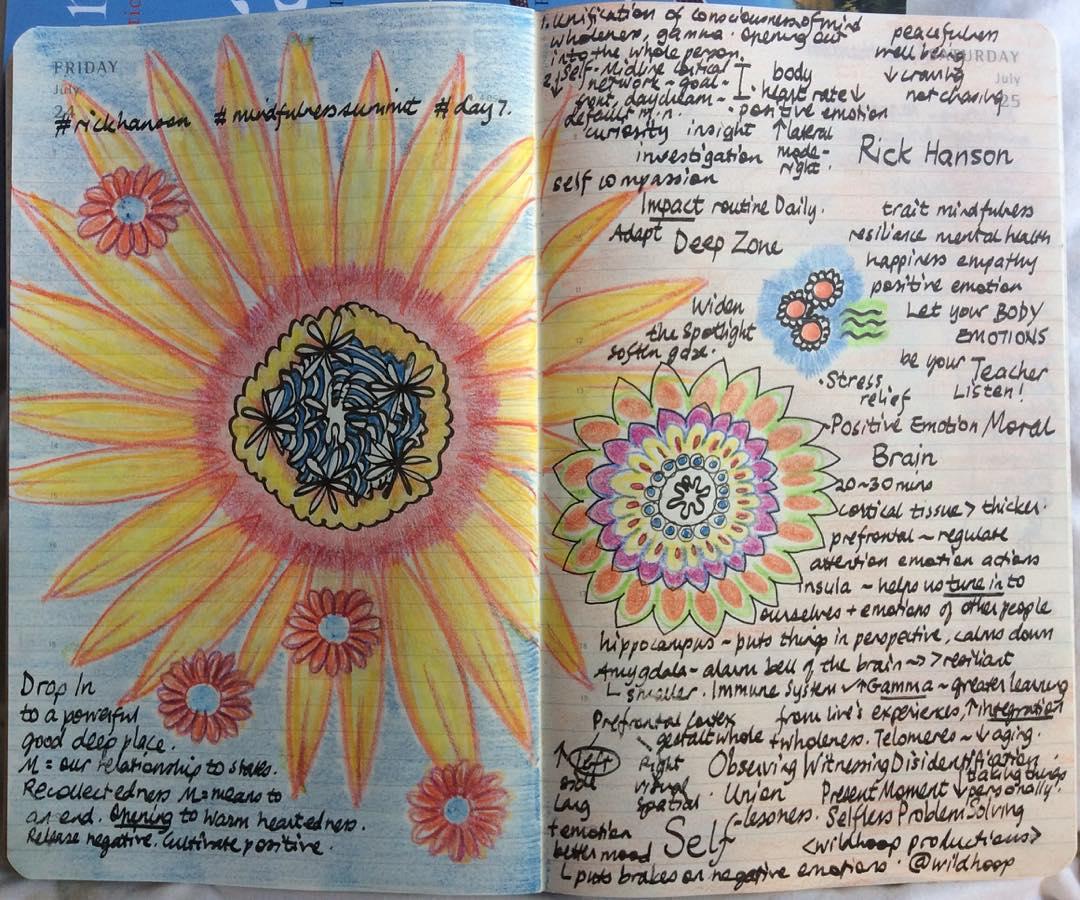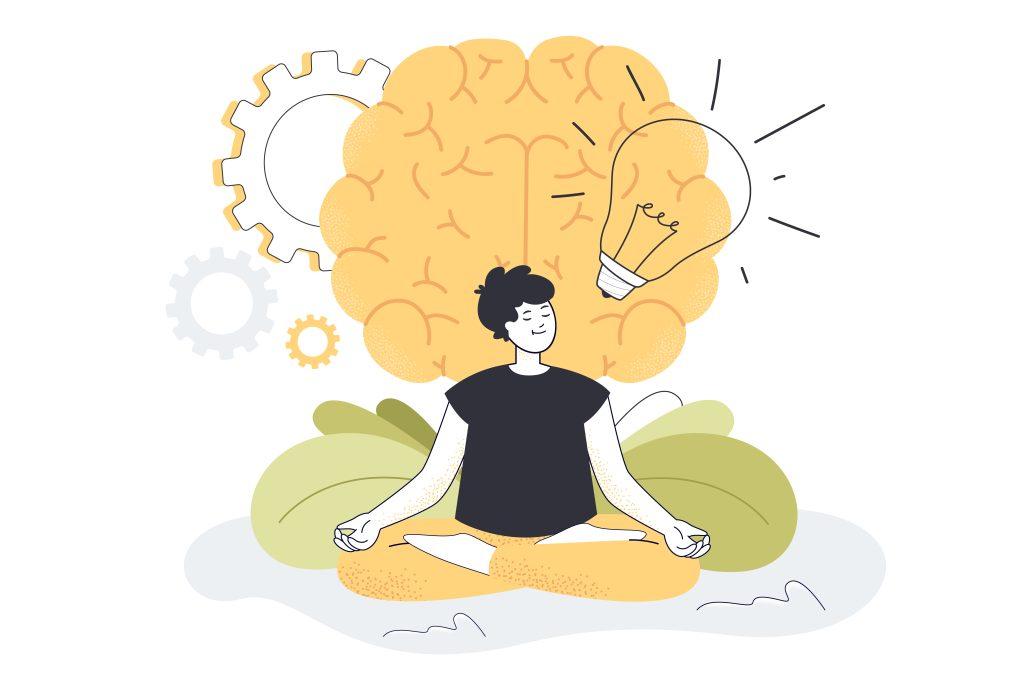In a world that constantly demands our attention, where distractions are just a notification away, the quest for mental clarity has become more elusive than ever. Yet, amid the chaos, a practice as ancient as the human experience itself offers a beacon of hope: mindfulness. This gentle art of being present, rooted in traditions that span cultures and centuries, is now the subject of rigorous scientific exploration. As researchers delve into the intricate workings of the mind, they are uncovering how mindfulness can cut through the mental fog, offering a path to clarity and calm. In this article, we will journey into the science behind mindfulness, unraveling the mysteries of how it shapes our brain, influences our thoughts, and ultimately, enhances our mental well-being. Join us as we explore the intersection of age-old wisdom and modern science, shedding light on how a simple shift in awareness can transform the way we navigate our inner and outer worlds.
Understanding the Neuroscience of Mindfulness
In recent years, the intricate dance between mindfulness and neuroscience has captured the attention of researchers and enthusiasts alike. Delving into the brain’s response to mindfulness practices reveals fascinating insights. Neuroplasticity, the brain’s remarkable ability to reorganize itself, is significantly influenced by mindfulness. Regular mindfulness practices, such as meditation, have been shown to increase gray matter density in areas of the brain associated with memory, emotional regulation, and decision-making.
- Prefrontal Cortex: Enhanced activity in this region leads to improved focus and cognitive flexibility.
- Amygdala: Mindfulness helps in reducing the size and activity of this part, which is linked to stress and anxiety.
- Hippocampus: Growth in this area is associated with better memory and learning capabilities.
Moreover, mindfulness practices foster a state of calm and clarity, by balancing the autonomic nervous system. This balance helps in reducing the ‘fight or flight’ response and promotes a state of rest and digest. Understanding these neural mechanisms not only underscores the importance of mindfulness in achieving mental clarity but also opens new avenues for therapeutic interventions aimed at enhancing mental health and well-being.
Exploring the Benefits of Mindful Practices on Cognitive Function
In recent years, scientific research has delved deeply into how mindful practices, such as meditation and yoga, can significantly enhance cognitive function. Mindfulness encourages individuals to focus on the present moment, which in turn cultivates a sharper, more attuned mind. This heightened awareness has been linked to improvements in several cognitive areas, including memory retention, attention span, and problem-solving skills.
- Improved Memory: Studies suggest that regular meditation can increase the density of gray matter in the brain, particularly in regions associated with memory and learning.
- Enhanced Focus: Mindful practices train the brain to filter out distractions, allowing for better concentration and sustained attention.
- Greater Emotional Regulation: By fostering a non-judgmental awareness of thoughts and feelings, mindfulness helps in managing stress and emotional responses, which can otherwise cloud cognitive clarity.
As these practices continue to gain popularity, their benefits on cognitive functions are becoming increasingly evident. By incorporating mindfulness into daily routines, individuals may not only experience enhanced mental clarity but also a more balanced and fulfilling life.

Practical Techniques for Enhancing Mental Clarity through Mindfulness
Incorporating mindfulness into daily routines can significantly boost mental clarity by fostering a greater awareness of the present moment. This practice is not just about meditation; it involves engaging in simple yet effective techniques that can be seamlessly integrated into everyday life. Consider the following strategies:
- Mindful Breathing: Take a few moments each day to focus solely on your breath. Notice the sensation of air flowing in and out of your nostrils. This practice can help calm the mind and sharpen focus.
- Body Scan: Spend a few minutes scanning your body from head to toe, acknowledging any tension or discomfort. This helps in releasing physical stress and enhances mental clarity.
- Gratitude Journaling: Dedicate time to write down things you’re grateful for. This shifts focus from negative thoughts and promotes a clearer, more positive mindset.
These techniques are rooted in the science of mindfulness, which suggests that being present can reduce stress and improve cognitive functions. By regularly practicing these methods, individuals can cultivate a clearer, more focused mind, enhancing overall well-being.

Incorporating Mindfulness into Daily Routines for Optimal Mental Health
Mindfulness has been scientifically shown to enhance mental clarity by fostering a present-focused awareness, which can lead to improved cognitive function and emotional resilience. By incorporating mindfulness into daily routines, individuals can tap into a myriad of mental health benefits. Research suggests that regular mindfulness practice can help reduce stress, improve focus, and enhance emotional regulation. These benefits are largely attributed to the practice’s ability to engage the brain’s prefrontal cortex, the region responsible for decision-making and problem-solving.
- Start with Breathing: Take a few minutes each day to focus solely on your breath. This simple act can help ground your thoughts and reduce anxiety.
- Mindful Eating: Pay attention to the taste, texture, and aroma of your food. This practice can help in developing a healthier relationship with food.
- Body Scan Meditation: Spend a few moments each day scanning your body for tension and consciously relaxing those areas. This can aid in reducing physical stress.
- Gratitude Journaling: Write down three things you’re grateful for every day. This helps shift focus from negative to positive aspects of life.
Implementing these practices doesn’t require a complete overhaul of your daily routine. Instead, it’s about integrating mindfulness in small, meaningful ways that promote a state of calm and enhance overall mental well-being.
